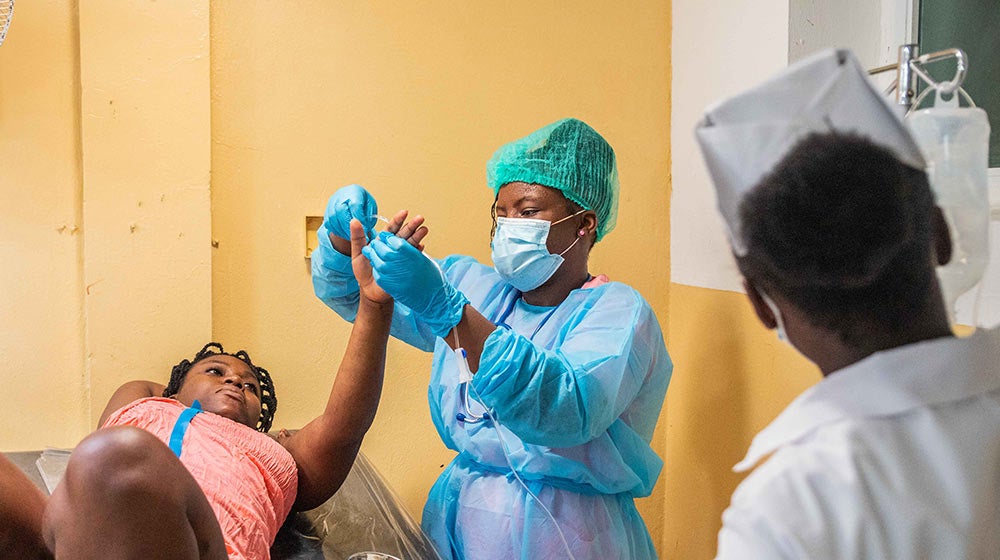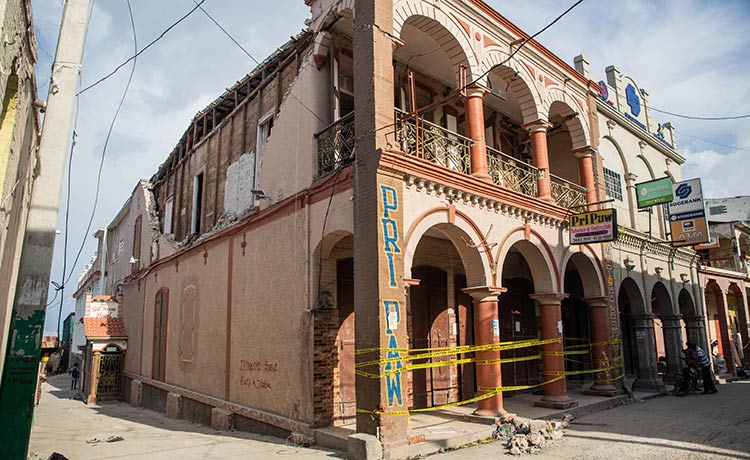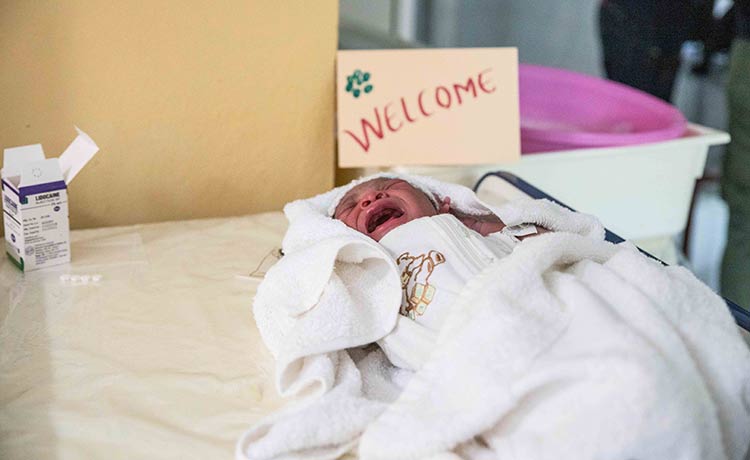Reproductive health supplies airlifted into quake-shattered Haiti

PORT-AU-PRINCE/NEW YORK – UNFPA and partner agencies have airlifted more than 125 tons of life-saving supplies to earthquake-shattered parts of Haiti.
The 7.2-magnitude earthquake that struck southern Haiti on August 14 killed more than 2,200 people. It injured more than 12,260 people and left 650,000 people in need of humanitarian assistance. Many of those in need in Haiti are women and girls, who require access to reproductive health care, maternal health services, family planning, and support after experiencing violence.
Initial UNFPA estimates suggest that more than 22,000 women will give birth in the next three months. Of these, around 3,700 are likely to require Caesarean sections. But, they may be unable to reach care. The disaster damaged or destroyed at least half of the available health facilities in affected areas. And, many health personnel – including midwives – are themselves experiencing homelessness, trauma, and loss.

“We have already managed maternal health emergencies and distributed prepositioned kits, containing basic hygiene items such as menstrual pads, soap, and underwear, to women and girls in Les Cayes, South of Haiti,” said Yves Sassenrath, UNFPA’s representative in Haiti, in the days following the quake.
Essential services and supplies
Still, the sexual and reproductive health needs are far-reaching.
A recent assessment found that a number of campsites lack sufficient lighting and sex-separated toilet facilities. These simple interventions are key to preventing violence. Preliminary information shows that some 1,800 water and sanitation systems have been damaged. The lack of sanitation facilities has left some women reporting vaginal infections and other concerns.
Among the supplies provided by the recent airlift, and earlier humanitarian deliveries were thousands of dignity kits. The kits contain essential hygiene supplies, including soap, shampoo, laundry detergent, menstrual pads, and underwear.
UNFPA has also procured emergency birth kits and mama kits to support safe childbirth for thousands of women. We have also provided supplies to support clinical management of rape and treatment of sexually transmitted diseases. UNFPA is also working to deploy mobile health teams and support family planning and maternal health at functioning hospitals.

Reaching the most vulnerable in Haiti
UNFPA has prepared staff in Haiti to manage cases of sexual violence toward women and girls. This work includes supporting survivors with mental health counseling. These concerns are particularly acute, as gender-based violence increases during humanitarian crises.
“Protection and health support services must be prioritized for women and girls and other vulnerable groups, such as people living with disabilities,” said Mr. Sassenrath. “We have interacted with dozens of people in the affected communities since the earthquake and recorded their concerns and fears in an effort to provide adequate and immediate life-saving support. Our urgent task is to ensure that their health, mental well-being, and rights remain at the front and center of our humanitarian response in Haiti.”
“Women and girls are disproportionately affected during crises,” emphasized UNFPA Executive Director Dr. Natalia Kanem. “We will work with Government and local partners, and the international community, to ensure that their sexual and reproductive health and protection needs are prioritized and their safety and dignity preserved.”
UNFPA originally published this story.